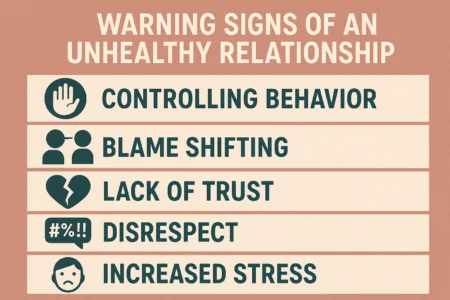Let’s talk about how women use playful teasing effectively without being critical. It really is tricky though, isn’t it? Get it right, and that playful poking fun feels flirty, makes you both laugh, brings you closer, and boom – new inside joke. But get it wrong… it can sting, feel critical, hit insecurities, and genuinely hurt. The goal, obviously, is always the fun, affectionate kind – the kind that makes you both smile, not cringe.
So how does that happen? How can teasing feel like a sign of affection rather than a veiled jab? From what I’ve seen in relationships (my own included, with both successes and definite missteps!), it boils down to a few key things – mostly centered around knowing your partner deeply, keeping the intention purely affectionate, and paying close attention. This isn’t about learning lines or techniques from a book; it’s about understanding the dynamic and navigating it with care, based on real connection.
The Danger Zone: When Playful Isn’t Playful
Before diving into the ‘how-to,’ let’s just acknowledge why this needs careful handling. Teasing can easily go sour if it:
- Hits a Known Sore Spot: Poking fun at something someone is genuinely insecure about (their job struggles, a physical insecurity, family issues) is almost never playful. It’s just mean.
- Sounds Like Genuine Criticism: If the “tease” echoes actual criticisms you’ve voiced seriously elsewhere, it just sounds like a nasty jab disguised as a joke.
- Is Delivered with a Bite: …or if your sarcasm sounds genuinely mean or annoyed, not funny. Tone and body language matter hugely.
- Happens at the Wrong Time/Place: … or doing it at totally the wrong time. Like, kicking someone when they’re already down by teasing a mistake? Or making fun of a funny habit right in front of their boss? Yeah, probably not going to end well.
- Becomes Constant or One-Sided: …or if it just never stops, you know? Or if it always seems like he’s the butt of the joke. That stops being fun fast and just feels mean, honestly, like picking on someone.
I cringe thinking back to times, probably years ago, when I thought I was being funny but likely just came across as critical. Learning what isn’t okay is just as important as figuring out what is. It’s about building trust, and careless words, even disguised as jokes, can chip away at that.
How women use playful teasing effectively without being critical
Okay, so bearing the risks in mind, how women use playful teasing effectively without being critical often seems to involve these elements, creating that warm, connected feeling instead of discomfort:
- Deep Audience Knowledge is Non-Negotiable: This is numero uno. You have to know your partner well. What are their actual sensitivities versus the things they can laugh about? What topics are completely off-limits? What’s their current mood? Are they stressed, tired, feeling vulnerable? Playful teasing requires a strong foundation of understanding and empathy. There’s no universal rulebook here; it’s entirely specific to the person.
- It Feels Affectionate: This is all about the delivery. A warm tone of voice, a smile in your eyes, maybe a light touch on the arm simultaneously – these cues signal that the intention is loving, not malicious. The overall vibe should scream “I adore you, you goofball,” not “I’m pointing out your flaws.” Think gentle ribbing, not a sharp jab.
- Target: Quirks, Not Core Flaws: Successful playful teasing usually focuses on harmless, endearing quirks or habits, shared funny moments, or temporary situations.
- Good targets: His slightly obsessive way of organizing his desk, the ridiculous face he makes when concentrating, his love for a terrible old movie you both secretly enjoy, that one time he tripped over literally nothing.
- Bad targets: His intelligence, his appearance (unless it’s about a truly shared joke, like a ridiculously loud shirt he knows is loud), his career struggles, his family relationships, anything he’s expressed insecurity about. Rule of thumb: If it’s something he might genuinely worry about, steer clear.
- Lean into Hyperbole: Exaggerating a small, harmless trait to an absurd degree often makes it clear you’re joking. If he sometimes hums off-key, teasingly calling him “Maestro of Mayhem” is different from just saying “You’re a terrible singer.” The exaggeration signals affectionate fun.
- Leverage Shared History & Inside Jokes: Teasing that references a past funny incident only the two of you fully understand strengthens your bond. It’s like a secret handshake. It reinforces “us” and feels inclusive, not isolating.
- Turn the Teasing on Yourself Too: If you can poke fun at your own quirks and foibles, it shows that the teasing isn’t about elevating yourself by putting him down. It establishes a culture where lightheartedness is welcome, and nobody takes themselves too seriously.
- Timing and Context are Crucial: Read the room! Don’t tease him about being clumsy right after he’s had a genuine fall. Don’t poke fun at his concentration face when he’s stressed about a deadline. Choose moments when you’re both relaxed and feeling connected. And be mindful of who else is around.
- Watch the Reaction – And Abort Mission if Needed! This is vital. Pay close attention to his immediate reaction – not just words, but body language, facial expression, tone of voice. Does he laugh genuinely? Does he playfully fire back? Or does he go quiet, look away, tense up? If it looks like it didn’t land well, stop immediately. Don’t double down or say “Can’t you take a joke?”. A simple, sincere “Oh, sorry, was that too much?” or just changing the subject might be needed. Sometimes you’ll misjudge it – we all do. The key is backing off quickly and gracefully when you realize you’ve crossed a line.

The Real Goal: Connection, Not Correction
So why even bother with teasing if it’s risky? Well, when it works, it really works. Sharing silly moments and those inside jokes you both get? It just pulls you closer, doesn’t it? And sometimes, poking fun gently is just a weird, backwards way of saying, ‘Yeah, I see that goofy thing you do, and it’s okay, I still love you.’ Plus, let’s face it, relationships need laughter! And teasing about habits? It kinda shows you’re actually paying attention to the little things. Let’s be crystal clear: the purpose of playful teasing isn’t to actually criticize or change someone’s behavior. That’s what direct, honest conversations are for.
Honestly, when someone teases me about something silly I do, and I can feel it’s coming from love? It’s weird, but it makes me feel… seen. Accepted. Like they get the whole, slightly goofy package and are okay with it.
Maybe Just… Don’t? (And How to Check)
Look, the bottom line is, if you’re even a little unsure if a joke will land okay? Just skip it. Better safe than sorry, always. And maybe, especially if you’re not sure where the lines are, just talk about it sometimes. A quick ‘Hey, you know I’m totally kidding when I say X, right? But seriously, tell me if it ever bugs you’ can make things way less awkward later. And yeah, some guys just plain don’t like being teased. Ever. If that’s him, you gotta respect it. Simple as that.
Wrapping it Up for How Women Use Playful Teasing Without Being Critical
So yeah, that whole ‘teasing without being critical’ thing? It really boils down to knowing your person inside and out, always coming from a place of affection, and having enough empathy to read the room. Keep it light. Aim for harmless quirks, not sore spots. Say it with a smile. And be ready to stop fast if it feels off. It’s less about being clever and more about being kind and tuned in. When you get that right? It adds this really nice spark, this extra bit of warmth and fun just between the two of you.
Frequently Asked Questions
What should women do if their teasing doesn’t go well or if they’re unsure about the response?
They should immediately stop, apologize if necessary, and communicate openly about boundaries to prevent misunderstandings and maintain trust.
Why is timing and context important in playful teasing?
Timing and context are crucial because teasing at the wrong moment or in the wrong environment can lead to misunderstandings or hurt feelings; it’s best when both are relaxed and feeling connected.
How can women ensure their teasing is perceived as affectionate rather than critical?
They should focus on lighthearted, harmless quirks, use exaggerated hyperbole, leverage inside jokes, tease themselves as well, and pay attention to their partner’s reactions to stop if it seems hurtful.
What should women avoid when teasing their partners?
Women should avoid teasing that hits a known insecurity, sounds like criticism, is delivered with bitterness, is inappropriate for the timing or context, or becomes a constant or one-sided pattern.
What are the key elements for women to use playful teasing effectively without being critical?
Women can use playful teasing effectively by knowing their partner deeply, ensuring their intentions are affectionate, and paying close attention to their partner’s reactions and sensitivities.





